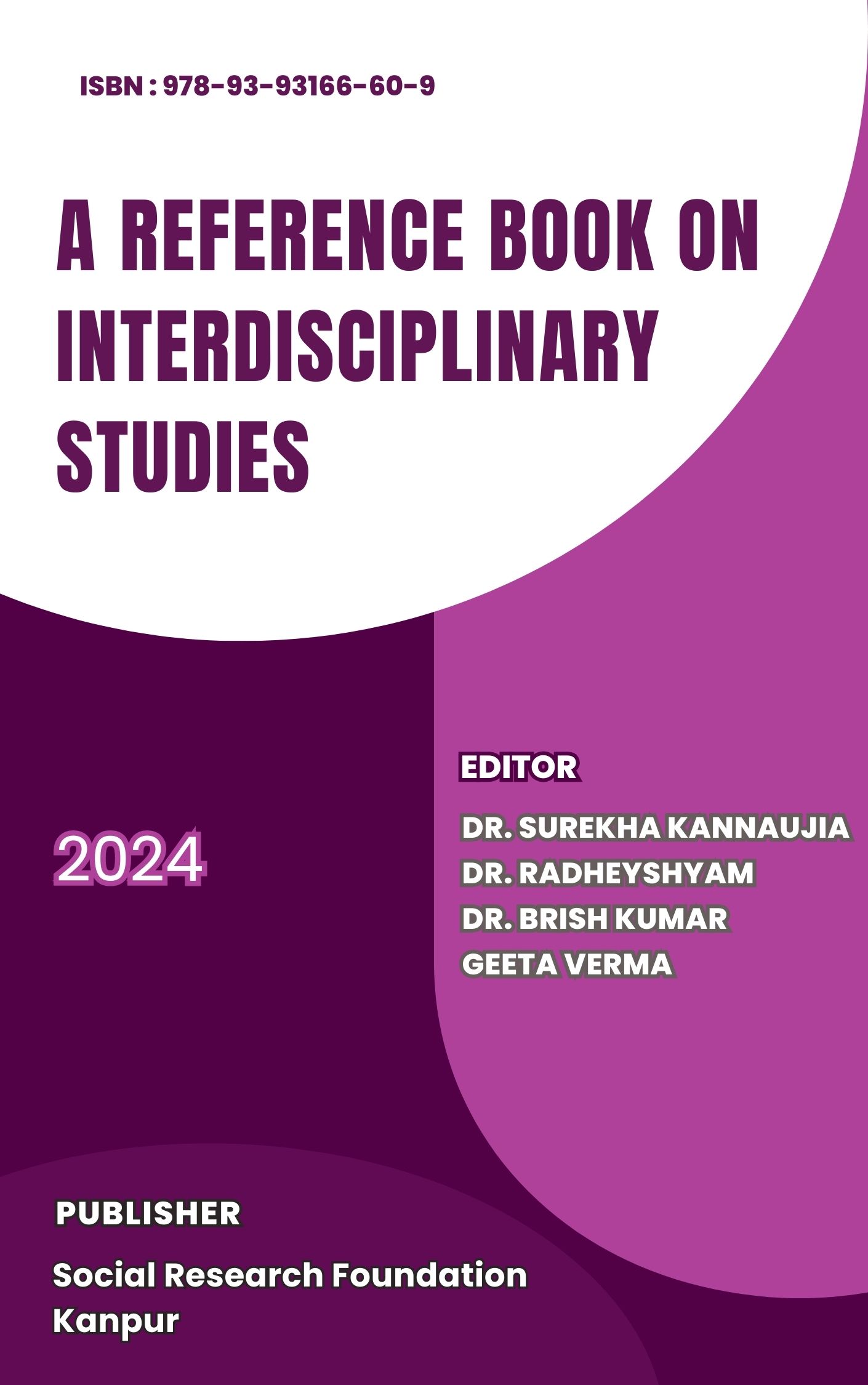 |
| A Reference Book on Interdisciplinary Studies ISBN: 978-93-93166-60-9 For verification of this chapter, please visit on http://www.socialresearchfoundation.com/books.php#8 |
Spirituality and Mental Well-Being: A Deep Connection |
|
Dr. Nimita Srivastava Nimkar
Associate Professor
BIMHRD
Sri Balaji University
Pune Maharashtra, India
|
|
DOI:10.5281/zenodo.12793915 Chapter ID: 19042 |
| This is an open-access book section/chapter distributed under the terms of the Creative Commons Attribution 4.0 International, which permits unrestricted use, distribution, and reproduction in any medium, provided the original author and source are credited. |
In today's fast-paced world, where stress and anxiety have become ubiquitous, the search for mental well-being is more critical than ever before. One often-overlooked pathway to achieving this balance is spirituality. Far beyond the confines of organized religion, spirituality encompasses a broad spectrum of beliefs and practices that connect individuals to something greater than themselves. This connection can significantly enhance human’s mental health and overall well-being. Understanding Spirituality Spirituality is a deeply personal human experience that relates to a sense of peace, purpose, and connection to others and the world. It often involves the pursuit of meaning and understanding of life's big questions. This can be through religion, meditation, nature, art or personal introspection. Unlike structured religious practices, spirituality is more about personal growth, finding inner peace, and feeling connected to the universe. The Role of Spirituality in Mental Health Stress Reduction: Spiritual practices such as meditation, prayer, and mindfulness can significantly reduce stress. These practices encourage individuals to live in the present moment, reducing anxiety about the future and regrets about the past. Improved Emotional Health : Spirituality often promotes positive emotions such as love, compassion, and forgiveness. These emotions can help individuals cope up better with life's challenges, reducing feelings of anger, resentment as well as depression. Enhanced Coping Mechanisms : Spiritual beliefs can provide a framework for making sense of difficult situations and losses, offering comfort and hope. This framework can enhance resilience, enabling individuals to bounce back from adversity more effectively to survive in the society. Sense of Purpose and Meaning : Engaging in spiritual practices can help individuals find a greater sense of purpose and meaning in their lives. This sense of purpose can act as a powerful motivator, improving overall life satisfaction and well-being. Community and Support : Many spiritual practices involve community activities, which can provide a strong support network. Being part of a community with shared values, emotions and beliefs can reduce feelings of loneliness and isolation, which are significant contributors to mental health illness. Scientific Evidence Supporting the Connection Research has increasingly supported the link between spirituality and mental well-being. Studies have shown that individuals who engage in spiritual practices often report higher levels of happiness and life satisfaction. For instance, a study published in the Journal of Religion and Health found that spiritual well-being was positively associated with reduced levels of depression and anxiety. Moreover, neuroscience research has revealed that meditation and prayer can lead to changes in brain structure and function. These changes are associated with improved attention, emotional regulation, and reduced stress reactivity. Practical Steps to Incorporate Spirituality into Daily Life Meditation and Mindfulness : Regular practice of meditation and yoga, mindfulness practices can help cultivate a sense of inner peace and present-moment awareness. Apps and guided meditations by trained coaches can be helpful for beginners to attain solace in their life . Journaling : Writing about one's thoughts and feelings can be a powerful way to explore and understand one's spiritual journey. Reflecting on what brings joy and meaning can help reinforce positive emotions and resilience. Nature : Spending time in nature can foster a sense of connection to the larger world. Activities like walking, hiking, or simply sitting in a park and watching scenic beauty can provide a spiritual experience that enhances mental well-being and enhances one’s feeling of contentment. Community Involvement : Participating in group activities that align with one’s spiritual beliefs, such as volunteer work or religious services, can provide support and a sense of belonging, emotional connectivity etc. Self-Reflection : Setting aside time for self-reflection, whether through prayer, meditation, or quiet contemplation, can help individuals connect with their inner selves and their spiritual beliefs. Conclusion Spirituality offers a profound and multifaceted path to mental well-being. By fostering a sense of connection, purpose, and inner peace, spiritual practices can significantly enhance mental health. In a world where mental health challenges are increasingly prevalent, incorporating spirituality into daily life can be a powerful tool for achieving and maintaining well-being. Whether through meditation, community involvement, or time spent in nature, the journey toward spiritual well-being is deeply personal and profoundly rewarding. |